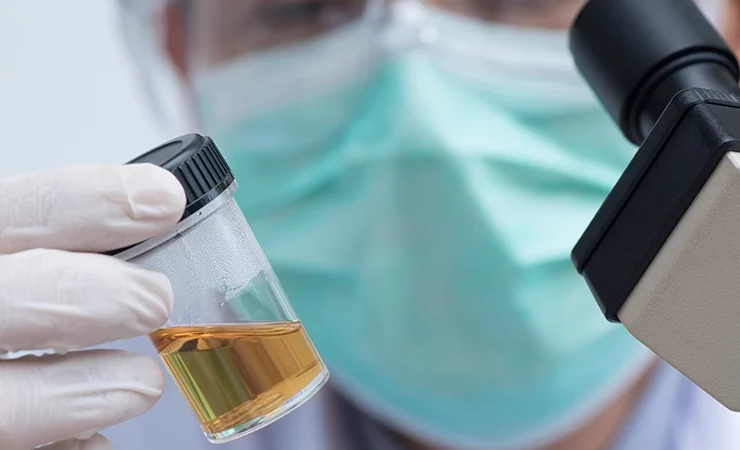How Long is Inpatient Drug Rehab in Canada?
Rehabilitation can be an arduous journey during recovery. However, inpatient drug rehab can make the process less tedious. You may decide to undergo rehabilitation on your own, but this is easier said than done. Self-rehabilitation can be extremely difficult due to triggers and enablers around you. Plus, inpatient drug rehab offers medical attention to manage withdrawal symptoms.
Inpatient drug rehabilitation programs cater to your every need and keep you far away from your addiction enablers. Deep in the professional inpatient rehab treatment world, you’re less likely to relapse into your old habits since you’re no longer close to your enablers.
This article will take you through the inpatient drug rehab timeline. Furthermore, we’ll explore the perks and benefits of signing up for this program.
Here’s all you need to know about how long inpatient drug rehab takes.
What Is Inpatient Drug Rehab?
Inpatient drug therapy involves intensive and residential treatment programs that treat severe addictions. The treatment process requires patients to reside in treatment centers for some time. During this period, you’ll engage in programs and activities designed to wean you off your addiction.
Patients check into a safe and secure environment where they receive 24-hr emotional and medical support. There is all-around supervision in these controlled recovery centres that cater to your basic needs.
However, before you venture into an inpatient rehab clinic, knowing how long drug rehab can take and preparing yourself for the challenge is essential.
Furthermore, medical professionals run the inpatient facilities and have training in several fields of medicine. These medical experts will guide you through the addiction treatment process. In addition, some orderlies will be on standby for anything you need during your stay.
It is paramount to get yourself into inpatient drug rehab. However, before you begin, you must also prepare yourself and get your personal effects in order.
Here are a few boxes to tick before going in for your recovery.
- Secure living arrangements for your children or other family members
- Confirm what personal items you can take with you
- Plan out your transportation to and from the rehab center
- Speak with your employer before embarking on the rehab journey
- Inform all essential acquaintances before going into treatment
You can have family visitations during your stay at the inpatient drug rehab center. Family involvement can significantly improve your recovery process thanks to the emotional and mental support they offer.
Occasional visitation from friends and family will constantly remind you why you are at the centre. The drug rehabilitation process can be a very lonely experience; thus, the presence of family members can ease the process.
Related Article: How Long Does Cocaine Stay in Your System?
The Importance of an Inpatient Drug Rehab
There are several reasons for checking into an inpatient drug rehab center, with your mental and physical health the most important ones. Addiction makes your body depend on harmful substances to perform basic functions.
Constant consumption of these addictive substances alters your brain and body chemistry. Therefore, you start to depend on these substances and crave them over more important things like food.
Because addiction changes your brain chemistry, it becomes increasingly difficult to quit these substances. Here are some of the risks that can arise when you try to combat addiction on your own:
Relapse
Relapse occurs when you return to the addictive substances you’re trying to combat after a while. One major perk of the inpatient drug rehab timeline is the lack of proximity to triggers or the substances you’re trying to quit.
However, you’re more likely to be closer to your addiction sources when combating addiction on your own. It can be harder to discipline yourself during this critical moment and fall back on these addictions. Relapse can be demoralizing as it undoes every progress you make so far.
Severe Withdrawal Symptoms
Withdrawal symptoms are inevitable when fighting your addiction. These symptoms arise when you starve your body of these addictive substances. Because your brain now depends on the addictive substance, your body goes into shock in its absence.
Quitting an addiction cold turkey can come with multiple withdrawal symptoms. These symptoms can be harmful and even deadly in extreme cases. That’s why inpatient drug rehab centres have prescribed alternatives to wean you off an addiction gradually.
Lack of Focus
When starving, it is difficult to focus on menial tasks. Over-dependence on hard substances can prevent you from focusing. If you try to quit individually without support, your body will lose focus on the basic things.
However, during the length of an inpatient drug rehab session, you will have access to amenities and infrastructure that will help your mind hone in on the right things.
The Decline in Mental Health
The mind is the driving force within the body responsible for your thoughts and actions. Regardless, as powerful as the mind is, it can also be fragile. Extensive substance abuse can damage the mind and negatively affect your mental health.
When trying to quit these substances on your own, the stress can take a massive toll on your brain without proper guidance. However, you’ll be privy to numerous meditation and mindfulness activities at an inpatient drug rehab center to ease the brain through recovery.
Physical Health Problems
Substance abuse can seriously damage your body internally. Furthermore, withdrawing from these drugs on your own can upset your appetite. Hence, you eat less and risk bodily damage and malnutrition.
It’s essential to know what particular food items to consume depending on which substance you are trying to cease using. At the recovery centers, you’ll have numerous options at your disposal to help. In addition, the medical staff will provide you with the right nutrient plan to stay healthy and fit.
Ultimately, this is where the addiction recovery timeline of an inpatient drug rehabilitation center comes into play. An inpatient rehab facility will provide you with the necessary steps and measures to combat the addiction.
Related Article: How Long Does Cocaine Stay in Your System?
How Long Does an Inpatient Drug Rehab Last?
It’s important to note that the road to recovery is patient and gradual. This section will break down the various timelines for inpatient drug rehabilitation.
First, there are three main processes present on the road to recovery, and they are:
- Detox
- Treatment
- Aftercare
Detox
Detox is the initial phase of drug therapy. Detox involves purging the body of the residual effects of the substance. The detox process takes between 10 to 14 days with light addiction. However, the process can take up to 60 days in extreme cases.
At this stage of the inpatient drug rehab, we test the body to see the severity of the substance abuse. We determine the withdrawal symptoms and take note of their effects on the body. All this information will help us decide the right treatment plan for you.
Treatment
Treatment is the main section of the rehabilitation process. After detox, we can extrapolate how long the drug rehab will take for you. Now, every treatment is different for each person, and timelines also vary.
Treatments at the inpatient facilities take weeks to months, depending on the scenario. However, three primary timelines determine how long you will stay at the rehab facility.
30-Day Treatment
The 30-Day Treatment is the premier treatment plan. This treatment plan helps you get over the basic withdrawal period and cravings. The addiction recovery timeline of this treatment plan especially helps patients that detect their addiction earlier.
Furthermore, this treatment plan helps you uncover early relapse prevention techniques. The plan is also relatively the cheapest plan you’ll begin with. Therefore due to its relatively low cost, many insurance companies may typically cover the cost.
The 30-day treatment plan is also the most straightforward plan you can commit to. You can easily track your growth and recovery by the treatment’s end. You’ll clearly understand your body to determine whether to quit the program or extend your stay.
60-Day Treatment
The 60-day treatment plan is longer than the previous one but is vital for stronger addictions. This length of inpatient drug rehab involves more family support. The inpatient clinic provides sessions that include your family and makes the journey to recovery easier.
The main crux of this treatment plan is to combat substances you have become strongly reliant on. We‘ll also run extensive therapy sessions to ease you back into society gradually. The therapy sessions will also detect particular circumstances leading to substance dependency.
However, insurance companies may not cover this treatment plan. Nevertheless, our inpatient drug rehab centers offer convenient payment plans. This payment model makes the recovery process as smooth as possible.
90-Day Treatment
The 90-day treatment plan may seem daunting and impossible at first. However, it’s the most rewarding treatment plan. In addition, it’s important to note that the longer you spend in the rehab clinic, the better you’ll be once you complete the program.
The 90-day program is robust and engaging, so you don’t have to worry about how long the inpatient drug rehab will take. In addition, you will experience a wide variety of individual and group therapy sessions and family interactions.
We typically recommend the 90-day treatment for the most severe cases of addiction. However, it is essential to note that your situation is never hopeless, no matter how chronic the addiction appears. This extended program will crack at the root of the problem and purify your system of your addiction.
Due to the extensive days, the insurance payment can be astronomical. Nevertheless, you can easily pay your way through with a solid insurance plan and a flexible payment plan.
After all, you can’t put a price on good and healthy living. Unsurprisingly, the 90-day treatment has the highest success rate among the three programs.
Aftercare
You may have overcome your demons and begun living a healthy lifestyle again. However, aftercare is important to maintain your renewed lifestyle once your program is over. Therefore, we provide inpatient addiction rehab programs for patients that complete their initial programs.
These programs involve peer-to-peer support and idyllic environments for you to adapt to your new lifestyle. The purpose of these aftercare programs is to slowly ease you into modern society and fully conquer your addiction in your day-to-day life.
We offer sober living quarters outside our inpatient drug rehab centers where you can interact with fellow recovering individuals. You can share your experiences and help each other stay sober through these interactions. Once you can engage with society without relapsing at this point, you can be confident in your progress.
Specialized Residential Services
When the caretaking parent has a persistent drug addiction issue, our Specialized Residential Services for Families provide a secure and supportive treatment setting for homeless families.
In order to maintain and preserve sobriety, our programs provide housing, coordination, and case management of drug addiction treatment and other assistance for homeless families.
Factors Affecting the Timeline of an Inpatient Drug Rehab Program
There are several other factors to consider that may affect the timeline of your recovery. These factors vary from person to person and include the following.
- The type of substance you are abusing
- Your weight
- Your rate of metabolism
- Your duration of substance abuse
- Your current age
The type of substance that you are using will determine how long your inpatient drug rehab will take effect. Alcohol and prescription drugs may be easier to combat than cocaine and meth. Hence, the medical staff at our facilities have schedules that we tailor to your specific substance abuse.
If you possess a heavier body, your body may hold substances for longer. Hence, we create treatment plans that correspond to your size.
Additionally, your body size and weight can also determine your rate of metabolism. Therefore, if you have a faster metabolism, you may go through the inpatient drug rehab detox faster. Please remember that detox is not a race, and be patient with your treatment regardless of the recovery speed of others.
The duration of time you’ve been abusing the substance also matters. Due to the drug’s alteration, it is crucial to be truthful to the medical personnel. If you have been using the substance for long, your detox process will take longer.
The current age that you are will also determine the effects of the substance on you. Your age will also determine the length of time it will take to detoxify the drugs out of your system. If you are younger and below 30 years, you have a higher chance of recovering and nailing your addiction in the coffin for good.
Types of Substances and their Rehab Timelines
We aim to help our patients overcome their addictions to various substances during the inpatient drug rehabilitation process. However, different substances have varying effects on the body, so it also takes different periods to leave them.
Here are some substances and their addiction recovery timelines as well.
Cannabis
Also known as weed or ganja, cannabis stays in the system depending on how long you’ve been using it. For light smokers, you can flush it out of your system in a week. However, it can take about a month of detox for heavy smokers and users to revert to their original selves.
Alcohol
The withdrawal symptoms of alcohol can be difficult and usually manifests between 6 to 72 hours. However, once you scale this daunting period, you can undergo detox for a week and start seeing some results.
Prescription Drugs
Our inpatient drug rehab facilities face a wide range of painkiller addicts. The addiction can be hard to beat due to its availability. Opioids like codeine create drowsiness that tricks your brain into feeling calm. However, the effects can be detrimental to your health. The average detox period is 2 weeks.
Cocaine
Cocaine is highly volatile, and you can succumb to its addiction on your first try. However, it typically stays in the body for up to 5 days. Hence, rehab can take less than a month if you tackle the addiction on time. However, detox can take about 60 days or more if you are a heavy user.
Heroin
Heroin has a painful withdrawal period with flu-like symptoms that can last over 2 weeks. Afterward, the detox can take about a month to flush the content out of your body.
Crystal Meth
Crystal meth possesses intense withdrawal symptoms that can last between 7 to 14 days. In extreme cases, you may experience bouts of paranoia and hallucination. However, do not fret as the worst symptoms disappear after 14 days. The addiction recovery timeline can last a minimum of 3 months.
Related Article: How Much Does Drug Rehab Cost in Vancouver?
Final Thoughts
Inpatient drug rehab is the ideal way to kick your addiction to the curb. You get to experience the full support of highly trained medical staff. Your family can also contribute to your journey to recovery.
How long inpatient drug rehab takes can be anywhere from 30-90 days. Once you commit to improving, you’ll emerge anew and be reborn as a functional member of society.
Our patient addiction rehab services at Inspire Change Wellness Centre are flexible and accommodating. It’s time to bury that substance abuse problem and become a better version of yourself. Call us today to explore different inpatient drug rehab treatment options.






